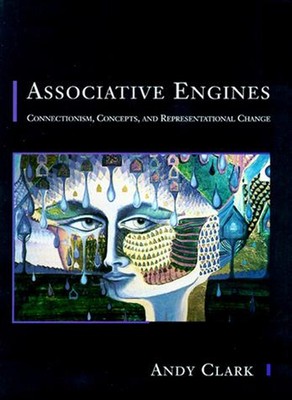
- We will send in 10–14 business days.
- Author: Andy Clark
- Publisher: MIT Press
- ISBN-10: 0262513773
- ISBN-13: 9780262513777
- Format: 15.5 x 23.1 x 1.5 cm, minkšti viršeliai
- Language: English
- SAVE -10% with code: EXTRA
Reviews
Description
Clark charts a fundamental shift from a static, inner-code-oriented conception of the subject matter of cognitive science to a more dynamic, developmentally rich, process-oriented view.Connectionist approaches, Andy Clark argues, are driving cognitive science toward a radical reconception of its explanatory endeavor. At the heart of this reconception lies a shift toward a new and more deeply developmental vision of the mind--a vision that has important implications for the philosophical and psychological understanding of the nature of concepts, of mental causation, and of representational change.
Combining philosophical argument, empirical results, and interdisciplinary speculations, Clark charts a fundamental shift from a static, inner-code-oriented conception of the subject matter of cognitive science to a more dynamic, developmentally rich, process-oriented view. Clark argues that this shift makes itself felt in two main ways. First, structured representations are seen as the products of temporally extended cognitive activity and not as the representational bedrock (an innate symbol system or language of thought) upon which all learning is based. Second, the relation between thoughts (as described by folk psychology) and inner computational states is loosened as a result of the fragmented and distributed nature of the connectionist representation of concepts.
Other issues Clark raises include the nature of innate knowledge, the conceptual commitments of folk psychology, and the use and abuse of higher-level analyses of connectionist networks.
EXTRA 10 % discount with code: EXTRA
The promotion ends in 24d.04:00:12
The discount code is valid when purchasing from 10 €. Discounts do not stack.
- Author: Andy Clark
- Publisher: MIT Press
- ISBN-10: 0262513773
- ISBN-13: 9780262513777
- Format: 15.5 x 23.1 x 1.5 cm, minkšti viršeliai
- Language: English English
Connectionist approaches, Andy Clark argues, are driving cognitive science toward a radical reconception of its explanatory endeavor. At the heart of this reconception lies a shift toward a new and more deeply developmental vision of the mind--a vision that has important implications for the philosophical and psychological understanding of the nature of concepts, of mental causation, and of representational change.
Combining philosophical argument, empirical results, and interdisciplinary speculations, Clark charts a fundamental shift from a static, inner-code-oriented conception of the subject matter of cognitive science to a more dynamic, developmentally rich, process-oriented view. Clark argues that this shift makes itself felt in two main ways. First, structured representations are seen as the products of temporally extended cognitive activity and not as the representational bedrock (an innate symbol system or language of thought) upon which all learning is based. Second, the relation between thoughts (as described by folk psychology) and inner computational states is loosened as a result of the fragmented and distributed nature of the connectionist representation of concepts.
Other issues Clark raises include the nature of innate knowledge, the conceptual commitments of folk psychology, and the use and abuse of higher-level analyses of connectionist networks.


Reviews